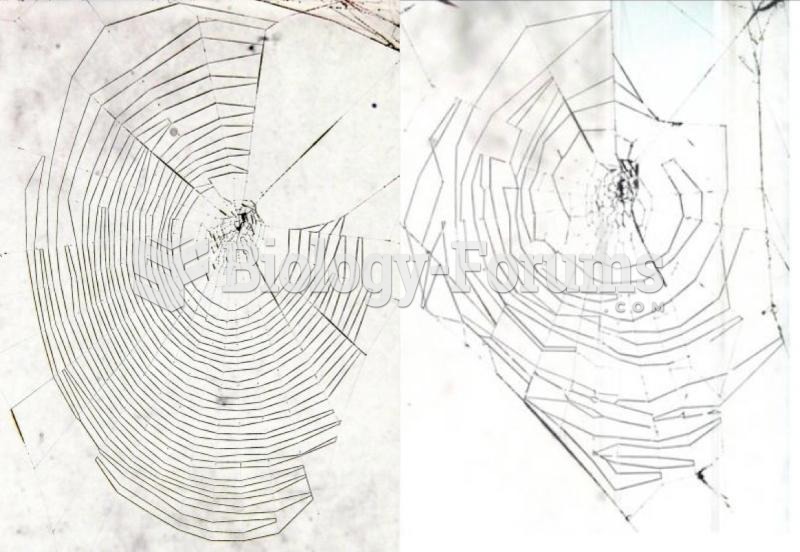|
|
|
Looking at the sun may not only cause headache and distort your vision temporarily, but it can also cause permanent eye damage. Any exposure to sunlight adds to the cumulative effects of ultraviolet (UV) radiation on your eyes. UV exposure has been linked to eye disorders such as macular degeneration, solar retinitis, and corneal dystrophies.
On average, the stomach produces 2 L of hydrochloric acid per day.
IgA antibodies protect body surfaces exposed to outside foreign substances. IgG antibodies are found in all body fluids. IgM antibodies are the first type of antibody made in response to an infection. IgE antibody levels are often high in people with allergies. IgD antibodies are found in tissues lining the abdomen and chest.
In the United States, congenital cytomegalovirus causes one child to become disabled almost every hour. CMV is the leading preventable viral cause of development disability in newborns. These disabilities include hearing or vision loss, and cerebral palsy.
According to the FDA, adverse drug events harmed or killed approximately 1,200,000 people in the United States in the year 2015.
 Left: This web was woven by a 17-day-old spider, showing regular patterns. Right: This web was woven
Left: This web was woven by a 17-day-old spider, showing regular patterns. Right: This web was woven
 Clockwise from above left: Green turtle (Chelonia mydas), Tuatara (Sphenodon punctatus), Nile Crocod
Clockwise from above left: Green turtle (Chelonia mydas), Tuatara (Sphenodon punctatus), Nile Crocod





